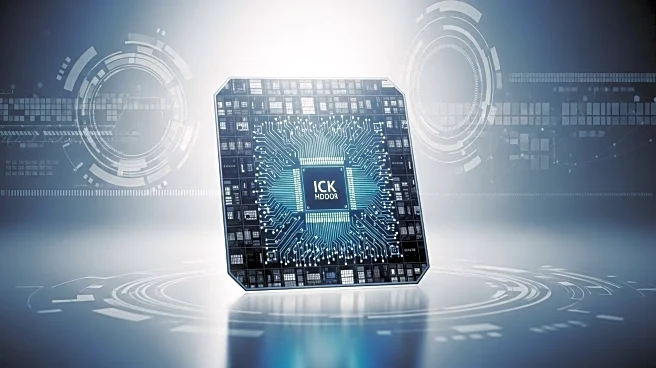What's Happening?
Taiwan has announced its decision to resist pressure from Washington to relocate half of its chip production capacity to the United States. This move comes amid growing concerns from the Trump administration about the U.S.'s heavy reliance on Taiwan for advanced semiconductors, which are crucial for various technologies including AI and weapon systems. Taiwan's Vice Premier Cheng Li-chiun stated that the country will not agree to the proposed production split, emphasizing the importance of maintaining its 'silicon shield'—a term used to describe Taiwan's strategic advantage in chip-making that could deter potential aggression from China. The U.S. Secretary of Commerce, Howard Lutnick, had suggested that splitting production would enhance Taiwan's security, but Taiwanese officials and opposition parties have criticized the proposal, viewing it as detrimental to Taiwan's strategic leverage.
Why It's Important?
The resistance from Taiwan highlights the geopolitical tensions surrounding semiconductor production, a critical component in global technology infrastructure. The U.S. aims to increase its domestic chip production to reduce dependency on foreign sources, particularly from regions with potential security risks. Taiwan's refusal to comply with U.S. demands underscores its strategic importance in the semiconductor industry and its role in international security dynamics. This situation could affect U.S.-Taiwan trade relations and influence global semiconductor supply chains, impacting industries reliant on these components, such as electronics and defense.
What's Next?
The ongoing negotiations between the U.S. and Taiwan are likely to continue, with potential implications for trade tariffs and bilateral relations. Taiwan's stance may lead to further diplomatic discussions and adjustments in U.S. policy regarding semiconductor production. The situation could also prompt other countries to reassess their semiconductor strategies, potentially leading to shifts in global production and supply chain configurations.
Beyond the Headlines
Taiwan's decision reflects broader concerns about national sovereignty and economic independence in the face of international pressure. The semiconductor industry is a key economic driver for Taiwan, and maintaining control over production is crucial for its economic stability and security. The situation also raises ethical questions about the balance between national interests and international cooperation in critical industries.









